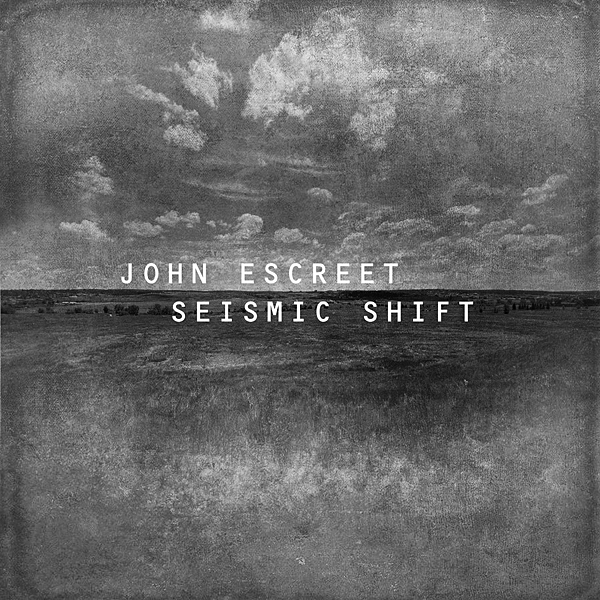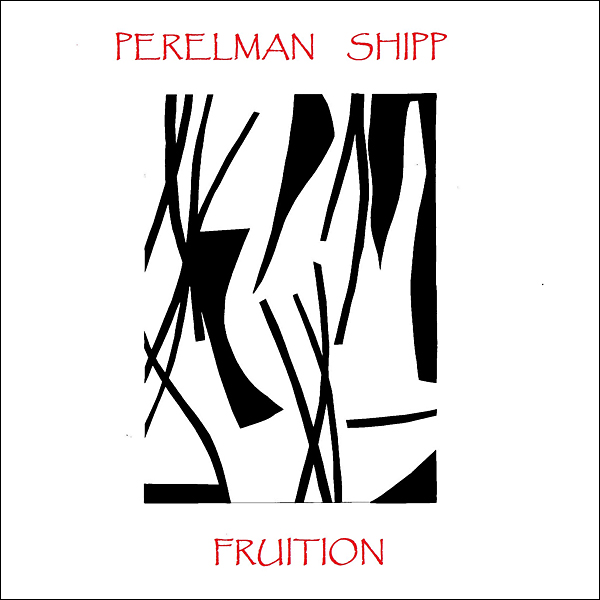| Columns Retired Columns & Blogs |
Excellent Jazz coverage as always, TC.
I will add these Discs to my collection.

The jazz piano trio has accurately been called "the minimum complete jazz orchestra." It is an instrumental format of infinite possibility. The range of what is achievable with a piano trio runs from the ethereal to the tumultuous, from reductive single-note Zen to vast complexity. John Escreet's trio with Eric Revis and Damion Reid leans strongly toward the tumultuous and the complex. It also attains something rare: an identity all its own.
From the opening track on Seismic Shift, "Study No. 1," Escreet makes you realize anew that the piano is a percussion instrument. He gets a different sound from the piano (beautifully captured on this recording). He makes it crack and resound. The extreme independence of his two hands defines space in irregular shapes. His dissonance clangs. His angles are severe.
Escreet has made nine albums under his own name but never a piano trio recording until now. In its extraordinary energy, power, and daring, Seismic Shift is a breakout. While its overall impact comes from its aggression (forcefully supported by Revis and Reid), it is not one-dimensional. Escreet has the chops to execute the wildest impulses of his imagination. Very few current jazz improvisers have as many original ideas per minute. With Escreet, those ideas come in deluges; they pile on top of one another. On an improvised piece like "Outward and Upward," clusters are spilled everywhere and overlay in arcane harmony. On compositions like "RD" and the title track, crashing chords become washes of extravagant lyricism. Anything might happen next. Tempos shift with a suddenness that does indeed feel seismic.
The only cover is so cool it makes you wish there were more. Stanley Cowell's "Equipoise" is a mysterious song. Escreet lets his left hand dwell on the mystery while his right hand roams free.—Thomas Conrad

Amina Figarova: Joy
Figarova, piano; Bart Platteau, flutes; Alex Pope Norris, trumpet, flugelhorn; Wayne Escoffery, tenor and soprano saxophones; Yasushi Nakamura, bass; Rudy Royston, Brian Richburg, drums; two others.
AmFi BACD016 (CD, available as high-resolution download). 2022. Figarova, prod.; Misha Kachkachishivili, Andy Taub, engs.
Performance ****
Sonics ****
Amina Figarova grew up in Baku, Azerbaijan, where she received a conservatory education in classical piano. In 1990, she attended Rotterdam Conservatorium in the Netherlands, where she met her husband-to-be, Bart Platteau, and began playing jazz. Her 2005 album September Suite suggested that she was among the most gifted jazz composers of her generation. Over 16 albums, that promise has been fulfilled.
Figarova and Platteau moved to the United States in 2010. Their bands now include both strong Europeans and prominent Americans. The sound at the leading edge of every Figarova ensemble is Platteau's acute, bright flute. With time, Figarova's compositions have become more layered and complex. Joy is a move in a different direction, toward simplicity. It has a single purpose: to create an island of light in the world's current darkness. The 10 songs are connected by the purity of their lyricism and the sincerity of their aspiration. "Suddenly Stars Are Falling from the Sky" and "Muse" are crystalline melodies, objective correlatives for gladness. "Only Peace Liberates" and "Morning Dew" are also pristine and rapt.
But while Joy is a work in which Figarova bares her heart, it never sounds fragile or sentimental. Platteau, Wayne Escoffery, Alex Pope Norris, and Figarova herself are clearly inspired by these new songs. Even when they play quietly, they burn with fervor. Anyone new to Figarova should start with September Suite, because it is one of the great jazz responses to the events of 9/11. Joy should follow soon. It is exactly what Figarova intended: a life-affirming antidote to the toxins of our troubled times.—Thomas Conrad

Ivo Perelman/Matthew Shipp: Fruition
Perelman, tenor saxophone; Shipp, piano
ESP-Disk ESP5070 (auditioned in WAV, available as CD). 2022. Steve Holtje, prod.; Jim Clouse, eng.
Performance ****
Sonics ****
The far left-of-center players of jazz are often extraordinarily prolific. Ivo Perelman and Matthew Shipp have just released their 18th album as a duo. Perelman's discography is 100 titles long. Shipp's oeuvre, as both leader and sideman, is also vast.
Perhaps the avant-garde crowd is so productive because their art is one of extravagant outpouring, not economy and focus. If they were painters, they would be more like Jackson Pollock than Andrew Wyeth.
In certain other respects, Perelman and Shipp are atypical free jazz players, on this album at least. They are relatively approachable. They do not raise hell and chaos. Perelman's tenor saxophone sound is rarely a rasp or a scream. Their tunes are not 45-minute onslaughts but specific, four- to seven-minute investigations.
What makes Fruition coherent is how the two musicians listen to each other. Their collaborative creative process is stimulus/response. One player postulates a snatch of melody, a harmonic cluster, a suggestion of a groove, or even just a splash of color. The other echoes or amplifies the idea. As exchanges proceed, the idea expands and evolves. Sometimes Shipp even fills in lush chords all around Perelman, not afraid of overt, if arcane, lyricism.
Fruition has the best of both worlds: the in-the-moment electricity of entirely improvised music and the fulfillment of structure coalescing out of apparent randomness. It also has qualities not often associated with avant-garde jazz, like nuance, space, and dynamic contrast.
If the descriptions above make you think that Fruition is not a deeply challenging listening experience, think again. Its creativity is in a constant state of flux. It would make terrible background music. If you don't pay close attention, some of the best ideas of Perelman and Shipp will blow right by you.—Thomas Conrad

Excellent Jazz coverage as always, TC.
I will add these Discs to my collection.